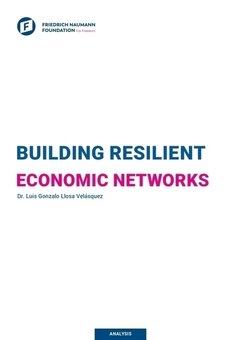Globalisation
How liberals can tackle economic fragmentation and protectionism

Glass sphere of planet Earth
© picture alliance / Westend61 | Andrew BrookesGlobalisation stands as one of the defining phenomena of the modern era, reshaping the global economy and society at large. Its impact transcends geographical boundaries, weaving a complex relationship of interconnectedness and interdependence. At the heart of globalisation lies the promise of prosperity as nations engage in trade, investment, and exchange of ideas to foster economic growth and development. However, many challenges emerge beneath this surface of benefits, demanding a nuanced understanding.
This policy paper analyses the origins and expansion of globalisation, shedding light on its diverse impacts. Central to this exploration is the recognition of globalisation's transformative power in driving economic growth and reducing disparities among nations. By integrating capital-poor regions and removing tariff and non-tariff barriers, globalisation produced an era of unprecedented opportunity, lifting millions out of poverty and fostering inclusive development. Moreover, it spurred productivity gains, capital accumulation, and the diffusion of ideas, catalysing innovation and entrepreneurship across borders.
Yet, alongside these remarkable achievements, globalisation also presents challenges that cannot be overlooked. The uneven distribution of gains, the rise in income gaps between skilled and unskilled labour, and the vulnerabilities inherent in global supply chains underscore the complexities of globalisation's impact on societies worldwide.
Moreover, the emergence of a political backlash against globalisation threatens to undermine its progress as some policymakers grapple with rising protectionism and populist sentiment.
In confronting these challenges, this paper offers insights into pathways forward for building a more resilient and sustainable global economy. From strengthening economic networks and promoting fair trade mechanisms to enhancing institutional frameworks and fostering international cooperation, it outlines a holistic approach to harnessing globalisation's potential for the benefit of all.

